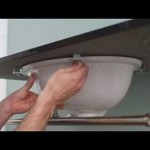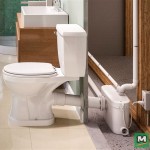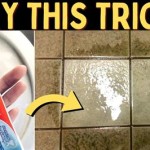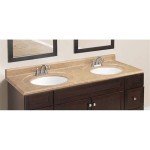Clogged Bathroom Drain Baking Soda: Essential Aspects to Consider
Maintaining a clear and functional bathroom drain is crucial for ensuring hygiene and preventing unpleasant odors. Clogged bathroom drains can be a common household issue, and baking soda is often touted as an effective natural solution. However, understanding the essential aspects of using baking soda to unclog drains is critical for achieving optimal results.
In this article, we will delve into the essential aspects to consider when using baking soda for clogged bathroom drains. By understanding these factors, homeowners can effectively resolve drain issues and maintain the cleanliness of their bathrooms.
Mechanism of Action
Baking soda, also known as sodium bicarbonate, is a mild alkali that reacts with acids. When combined with an acid, such as vinegar, baking soda produces carbon dioxide gas. This gas creates a fizzing action that helps to loosen and break up clogs. Baking soda is particularly effective in removing clogs caused by organic matter, such as hair, soap scum, and food residue.
Usage Instructions
To use baking soda for clogged drains, follow these steps:
- Pour 1/2 cup of baking soda down the drain.
- Follow with 1/2 cup of vinegar.
- Allow the mixture to sit for 15-30 minutes.
- Flush the drain with hot water.
If the clog persists, you can repeat the process or consider using other methods.
Effectiveness
The effectiveness of baking soda in unclogging drains depends on several factors, including the type and severity of the clog. Baking soda is most effective for minor clogs caused by organic matter. While it may not be as effective for severe clogs or clogs caused by inorganic materials, such as mineral deposits or tree roots, it can still help to loosen the clog and make it easier to remove.
Environmental Considerations
Baking soda is a natural, non-toxic substance, making it an environmentally friendly option for drain cleaning. It does not release harsh chemicals or fumes that can harm the environment or human health.
Limitations and Safety Precautions
While baking soda is generally safe to use for drain cleaning, it is important to follow the instructions carefully and avoid excessive use. Overuse of baking soda can damage metal pipes or fixtures over time. Additionally, baking soda should not be used with other chemical drain cleaners, as this can create dangerous reactions.
Conclusion
Understanding the essential aspects of using baking soda to unclog bathroom drains is crucial for effectively resolving drain issues. By following the proper usage instructions, considering the effectiveness and limitations of baking soda, and observing safety precautions, homeowners can maintain clean and functional bathroom drains while minimizing environmental impact.

Why You Should Never Use Baking Soda And Vinegar To Clean Clogged Drains Bren Did

Unclog Drains Naturally With Baking Soda And Vinegar Mom 4 Real

Unclog Drains Naturally With Baking Soda And Vinegar Mom 4 Real

How Do You Unblock A Drain With Baking Soda 1 2 Bristol Unblocking

Can You Really Clean The Drain With Baking Soda And Vinegar

Why You Should Never Use Baking Soda And Vinegar To Clean Clogged Drains Bren Did

Unclog Drains Naturally With Baking Soda And Vinegar Mom 4 Real

How To Unclog A Bathroom Sink Easily Fix Common Clogs
How To Unclog A Drain With Baking Soda Quora

How To Unclog A Bathtub Drain Bleach Baking Soda And Others
Related Posts







